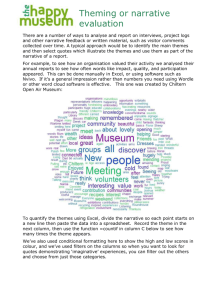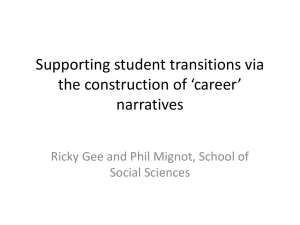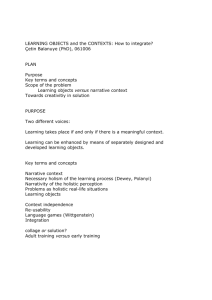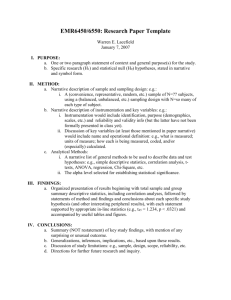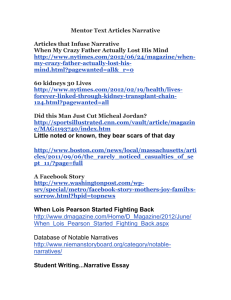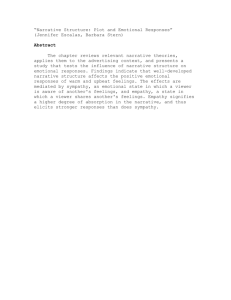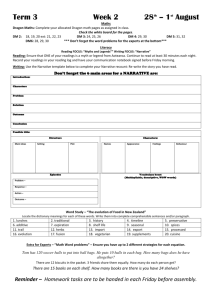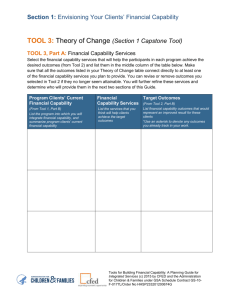(PPTX, Unknown) - Tennessee Career Development
advertisement
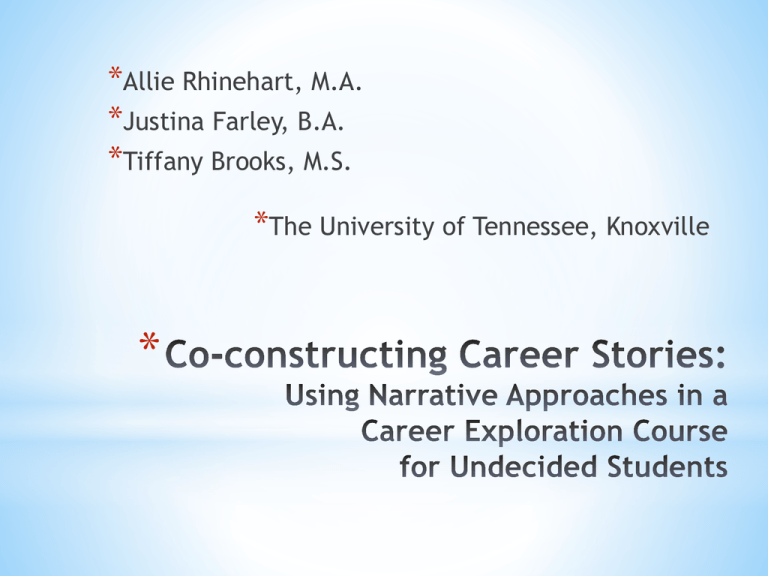
*Allie Rhinehart, M.A. *Justina Farley, B.A. *Tiffany Brooks, M.S. *The University of Tennessee, Knoxville * * Career is one part of the whole person. * The 21st century job market is fluid, as is a person’s vocational personality. * A holistic framework addresses multiple aspects of an individual’s personality, as well as any apprehensions he or she may have about finding a place in the world of work. (Savickas, 2011) * Reid (2005) insists narrative theory must be embraced to ensure successful career counseling in the 21st century. * * Narrative Theory * Shifts from objective measures * Provides a more holistic, subjective, and positivistic approach * Encompasses the importance of self-reflection (Maxwell, 2007) * Narrative Interventions * Help counselors understand an individual’s personal story * Facilitate the creation of a client’s career * Assist in altering client’s story * (Savickas, 2005) * Traditional trait-factor approaches do not take into account the complexity of career behavior (Bujold, 2004). * Many career researchers and practitioners embrace narrative approaches. * * Offer college students a place for self-exploration. * Promote an increased knowledge base regarding educational programs and the world of work. * Improve decision-making skills * Development of self-awareness * Understanding of majors (Kelly & Pulver, 2003) * * Discussion vs. Lecture * Personal Reflections * Experiential Activities * Partner and Group Processing * Technology * PowerPoint, Prezi, Videos, Internet * Guest Speakers * Individual Appointments * * Life Circle * Timeline * Values Reflection * Card sort * Final Integrative Reflection * Dream Job Activity * Prompts * What piece of your SII results can be a part of your career story? * Future Career Autobiography (FCA) * * Qualitative tool * Personal and career motives, values, and direction * Purpose: * To measure change or lack of change in an individual’s occupational narrative over time * To assess for career intervention effectiveness (Rehfuss, 2009) * * “Write a brief paragraph about where you hope to be in life and what you hope to be doing occupationally in 5 years after graduating from college.” * * Goal: * Empower individuals to be the narrator of their career story * Examine their current and future values/commitments * More research/practice is needed (Rehfuss & Di Fabio, 2012) * * Promote storytelling by asking leading questions and identifying themes * Raise client awareness of themes and unresolved issues * Help client construct a career to fit themes and address issues * Promote career adaptability * * Measure the effectiveness of career exploration courses for undergraduate students * Identify students with continued needs for career counseling * Opportunities to offer post course interventions to students identified as having no change *


